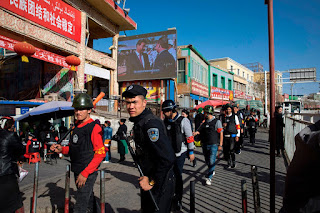The Housing Crisis: Affordable Cities Start in Your Backyard
The culmination of six months of efforts started in silence. After working on my Global Scholars capstone project relentlessly to ensure that all of the details were arranged, it was finally 5:00, and I had nothing to do except wait for an hour until people began to show up to see my presentation. I should not have been nervous, for I had the relatively easy task of delivering the English portion of the presentation (my partner, Victor Swezey, was in charge of the considerably more stressful Spanish translation). But I was. I wanted everything to run smoothly. More than that, though, I wanted everyone to leave with a greater understanding of the importance and absolute necessity of creating affordable housing. To this end, I worked with Victor to create a comprehensive presentation and selected a panel of professionals in fields of architecture, law, activism and public policy.
From the outset, our project was relatively unconventional; rather than choose between drafting a grant proposal and delivering a presentation, we decided to tackle both. We partnered with Inquilinos Unidos, a tenants' rights organization serving the largely-immigrant tenants of the Pico-Union and MacArthur Park neighborhoods, to fund the second session of the Leadership Academy and host a panel discussion on affordable housing.
The Leadership Academy was established to train tenants to become activists within their own communities. By creating a web of tenant activists who could then go out and help others, Inquilinos Unidos divined a system that would propagate throughout entire neighborhoods and help to protect the rights of tenants who are vulnerable to exploitation. By drafting a grant proposal for the Leadership Academy, we were able to ensure that the nascent program would not have to worry about where its funds would come from and could focus on its purpose: educating and empowering tenants.
The discussion was comprised of four panelists, all brilliant speakers in their own right, who united to talk about the past, present, and future of affordable housing. Alice Kimm, the co-principal architect at JFAK Architects and my former boss, brought with her a wealth of knowledge on the conception and design of affordable housing buildings and homeless shelters. Sitting across from her was William Huang, the director of housing for the City of Pasadena who shared his innovative approaches to dispelling stigmas surrounding affordable housing. The humble demeanor of the third panelist, Clemente Franco, belied his lifelong dedication for affordable housing as a lawyer and President of the Board of Directors at Inquilinos Unidos. Our last panelist, Jose Felix Cabrera Larios, shared his deeply moving personal story as an immigrant tenant who personally experienced abuses from landlords and unconscionable housing practices.
During the panel discussion, the speakers underscored the need for perceptions surrounding affordable housing to shift from being "undesirable:" simply put, a need for affordable housing doesn't beget the creation of affordable housing. Instead, affordable housing is borne out of an active desire from communities to want to build. Moreover, Clemente Franco succinctly explained that we must re-examine the way that we want our cities to look in the future. If we want to promote diversity, to create a society where different cultures and classes can interact, we must build affordable housing. If we don't, we will inadvertently (or actively, depending on how malicious you believe the actors that prevent the construction of affordable housing are) promote segregation and homogenous communities where everyone looks the same.
After the panel, the attendees flowed out of the doors of Garland Auditorium and onto the patio, where dinner was served and members of the Poly community mingled with the tenants in the Leadership Academy. By connecting people who view eviction as unfathomable with those for whom it is a daily threat, I think that the dinner served to further the ideas brought up during the panel and remind everyone in attendance that diversity is not only good: it is essential for creating the cities of the future. As I walked back to my car in the dark, all I could think about was the impact that these interpersonal connections can have on transforming the future of city skylines. By educating people on all sides of the issue of affordable housing, I think that we can reframe controversial construction as a universal good that can start in your backyard.


Comments
Post a Comment